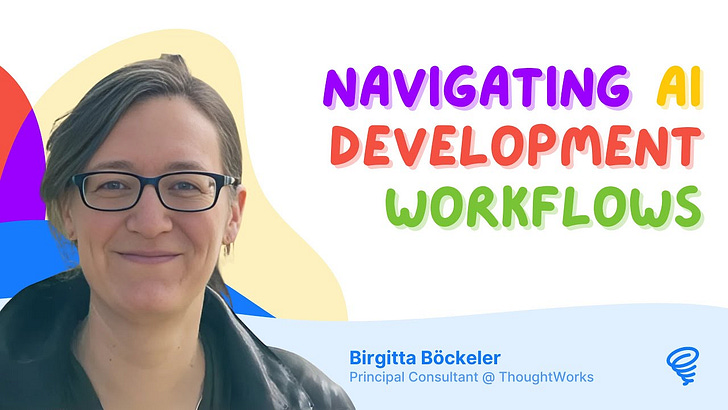Today's guest is Abi Noda, the CEO and founder of DX, one of the leading engineering intelligence platforms.
With Abi, we talked about measuring and improving developer experience. We started with the early days of Accelerate and why we feel like most people got the book wrong. Then we continued to present days and how research focuses on driving great developer experience. And finally, we couldn't avoid talking about AI and why it seems to be a game changer for entrepreneurs, but not so much for teams yet!
🎙️ Episode
You can watch the full episode on Youtube:
Or listen to it on Spotify, Apple, Overcast, or your podcast app of choice.
🥇 Interview Summary
If you are a 🔒 paid subscriber 🔒 you will find my own summary of the interview below.
It’s the 10-minute, handcrafted takeaways of what we talked about, with timestamps to the relevant video moments, for those who don’t have time to sit through the 1-hour chat.
Here is the agenda for today:
📈 Abi's Journey and Pull Panda Origin Story (02:10)
📚 Revisiting Accelerate and DORA Metrics (07:09)
🔍 Output vs. Input Metrics (13:06)
💻 Defining and Measuring Developer Experience (21:32)
🤖 AI's Impact on Developer Productivity (35:21)
Let's dive in 👇
1) 📈 Abi's Journey and Pull Panda Origin Story (02:10)
Abi Noda's journey into developer productivity began about eight years ago when he transitioned from software development to engineering management. As a newly appointed CTO at a startup, he faced a critical question from his CEO: how do we measure engineering productivity?
"I always joke with people, I'm still trying to answer that question. Eight years later, I'm still trying to answer that question for my CEO."
This question led Abi to create Pull Panda, which started as a simple tool to automate pull request reminders for his team. After being let go from his job, he continued developing Pull Panda, which grew to include analytics for measuring pull request metrics. The tool combined both quantitative data and actionable insights, making it particularly valuable for engineering teams.
What made Pull Panda effective wasn't just the dashboards but the automated alerts that nudged teams toward better behaviors — demonstrating early on that metrics alone aren't valuable without driving action.
2) 📚 Revisiting Accelerate and DORA Metrics (07:09)
The conversation turns to the influential book "Accelerate" and how its legacy has been somewhat misunderstood in the industry. We covered this because I was writing our own review + summary of accelerate, which went out on Wednesday!
While most engineers associate Accelerate with the four DORA metrics, Abi points out that the book is actually 90% about culture and engineering practices, with metrics being just a small component.
"There's a running joke in the community that when the book got published, everyone just jumped to page 19 or 20, read the page with the four metrics, and then put down the rest of the book."
Until Accelerate, the discourse around engineering metrics focused mainly on whether to measure lines of code or story point velocity. Accelerate was revolutionary because it introduced metrics that were actually meaningful, with statistical backing.
However, Abi emphasizes that organizations often misuse these metrics by focusing too narrowly on the numbers themselves rather than understanding their purpose within the broader organizational context.






